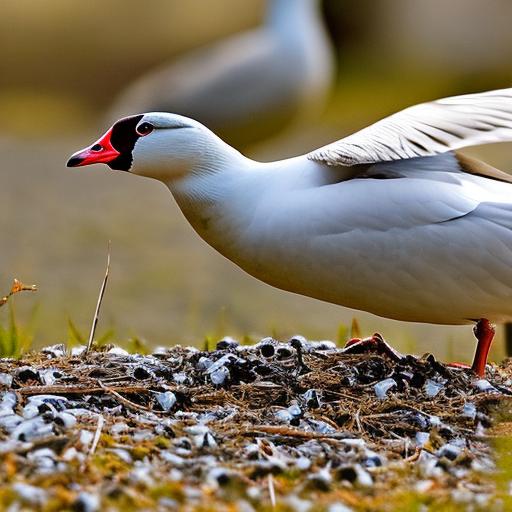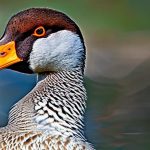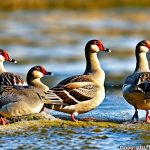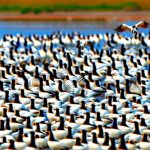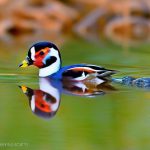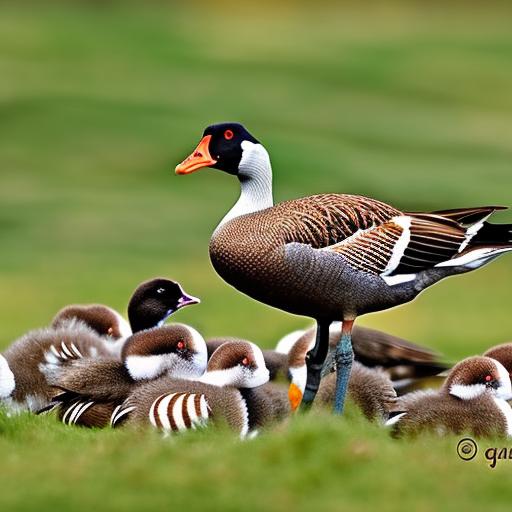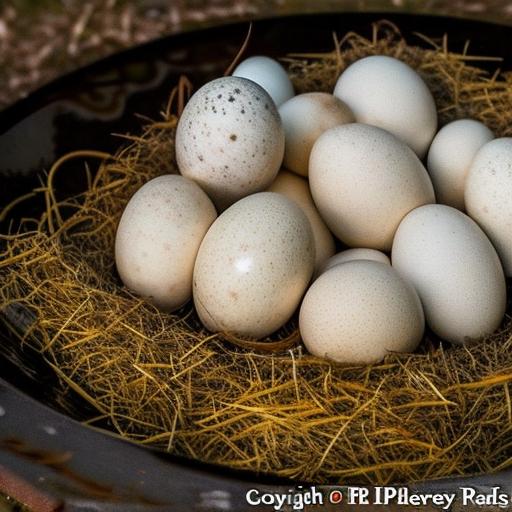Embden geese are a popular breed of domesticated geese known for their large size and white plumage. They are commonly raised for meat, eggs, and as ornamental birds. Understanding the breeding season of Embden geese is crucial for successful reproduction and maintaining a healthy flock.
The breeding season for Embden geese typically begins in late winter or early spring, depending on the climate and geographical location. During this time, the geese become sexually mature and exhibit specific behaviors and physiological changes associated with reproduction.
Key Takeaways
- Embden geese breeding season typically occurs in the spring and summer months.
- Understanding the reproductive cycle of Embden geese is important for successful breeding.
- Factors such as age, nutrition, and lighting can affect Embden geese breeding season.
- Preparing for breeding season includes providing proper nutrition and housing for geese.
- Selecting the right mating pairs based on genetics and temperament is crucial for successful breeding.
Understanding the Reproductive Cycle of Embden Geese
The reproductive cycle of Embden geese is influenced by hormonal changes that occur in response to environmental cues. As the days become longer and temperatures rise, the geese’s reproductive hormones are triggered, leading to the onset of breeding behavior.
During the breeding season, male geese, known as ganders, become more aggressive and territorial. They engage in courtship displays to attract females, including head bobbing, wing flapping, and honking. The female geese, known as geese, respond by displaying submissive behavior and accepting the advances of a chosen mate.
Once a pair has formed, they will engage in mating behavior, which involves the male mounting the female and copulating. This process may occur multiple times over a period of several weeks to ensure successful fertilization.
Factors Affecting Embden Geese Breeding Season
Several factors can affect the breeding season of Embden geese. Environmental factors such as temperature, daylight hours, and availability of nesting sites play a significant role in triggering reproductive hormones and initiating breeding behavior.
Geese also require a balanced diet to support successful reproduction. Adequate nutrition is essential for egg production and fertility. A diet rich in protein, vitamins, and minerals is necessary during the breeding season to ensure healthy eggs and goslings.
Preparing for Embden Geese Breeding Season
To prepare for the breeding season, it is important to provide suitable housing and nesting areas for the geese. A spacious and secure enclosure should be provided to allow the geese to engage in natural behaviors and protect them from predators.
Nesting boxes or areas should be provided to encourage the geese to lay their eggs in a safe and comfortable environment. These nesting areas should be filled with clean straw or other suitable bedding material.
Feeding and nutrition are crucial during the breeding season. A balanced diet that includes a high-quality poultry feed supplemented with fresh greens, grains, and access to clean water is essential for optimal reproductive health.
Selecting the Right Mating Pairs for Embden Geese
Selecting the right mating pairs is crucial for successful breeding and maintaining desirable traits in the flock. It is important to choose geese and ganders that are healthy, genetically diverse, and exhibit desirable characteristics such as good size, plumage quality, and temperament.
Factors to consider when selecting mating pairs include age, physical condition, and compatibility. It is recommended to pair geese and ganders of similar age and size to ensure successful mating and minimize the risk of injury.
Embden Geese Nesting and Egg Laying Process
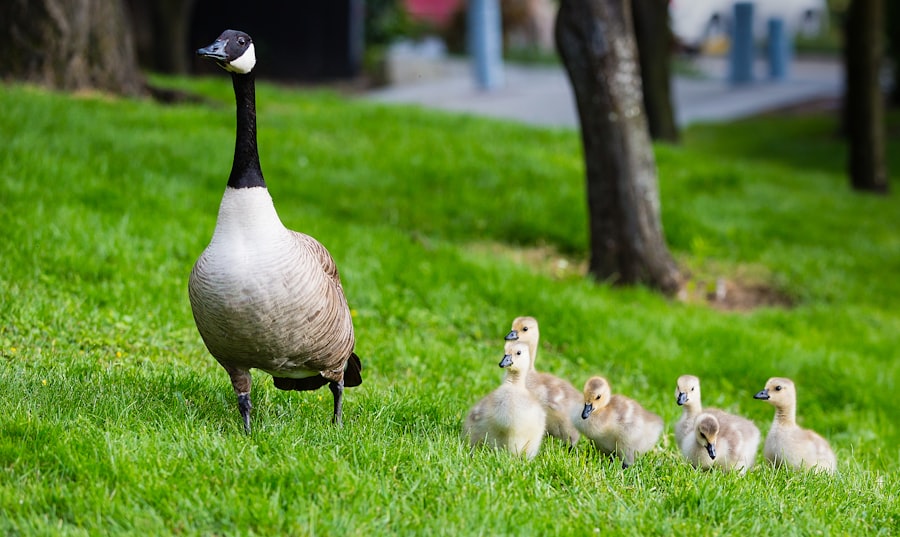
Embden geese exhibit specific nesting behaviors during the breeding season. The female geese will search for suitable nesting sites, often in secluded areas with tall grass or shrubs. They will then construct a nest using materials such as grass, feathers, and twigs.
Once a nest is built, the female will lay a clutch of eggs over a period of several days. The average clutch size for Embden geese is around 6-12 eggs, although this can vary. The female will then begin incubating the eggs, which typically takes around 28-34 days.
Incubation and Hatching of Embden Geese Eggs
During the incubation period, the female goose will remain on the nest, rotating the eggs to ensure even heat distribution. It is important to provide a quiet and undisturbed environment for the nesting goose to minimize stress and maximize hatchability.
The temperature and humidity levels in the incubation area should be carefully monitored to ensure optimal conditions for embryo development. The ideal temperature for incubating Embden geese eggs is around 99-100 degrees Fahrenheit.
After the incubation period, the eggs will begin to hatch. The goslings will use their egg tooth to break through the shell and emerge. It is important to provide a warm and safe environment for the hatchlings, as they are vulnerable to cold temperatures and predators.
Caring for Embden Geese Chicks during Breeding Season
Feeding and nutrition are crucial for the health and growth of Embden geese chicks during the breeding season. A high-quality starter feed specifically formulated for waterfowl should be provided from hatching until they are around 6-8 weeks old.
Fresh water should be available at all times, and it is important to monitor the chicks’ water intake to prevent dehydration. Housing should be clean, dry, and secure to protect the chicks from predators and provide them with a safe space to grow.
Common Health Issues during Embden Geese Breeding Season
During the breeding season, Embden geese may be susceptible to certain health issues. These can include respiratory infections, egg binding in females, and injuries from aggressive mating behavior.
Prevention is key in maintaining a healthy flock. Providing a clean and sanitary environment, regular veterinary check-ups, and a balanced diet can help prevent many common health issues. If health issues do arise, prompt treatment is essential to prevent further complications.
Conclusion and Tips for Successful Embden Geese Breeding Season
Understanding the reproductive cycle of Embden geese and providing the necessary care and nutrition is crucial for a successful breeding season. By selecting the right mating pairs, providing suitable housing and nesting areas, and ensuring proper nutrition, breeders can increase the chances of successful reproduction and maintain a healthy flock.
It is important to approach the breeding season with patience and a sense of enjoyment. Breeding Embden geese can be a rewarding experience, and with proper care and attention, breeders can witness the joy of new goslings hatching and growing into healthy adult birds.
If you’re interested in breeding season for Embden geese, you may also find this article on chicken coop interior ideas from Poultry Wizard helpful. Creating a comfortable and functional environment for your geese during breeding season is crucial, and the same principles can be applied to chicken coops as well. From choosing the right flooring to providing adequate heating, every aspect of the coop plays a role in ensuring the well-being of your birds. Check out this article here for some great ideas on how to optimize your coop’s interior for breeding success.
FAQs
What is the breeding season for Embden geese?
The breeding season for Embden geese typically starts in late winter or early spring, usually around February or March.
How long does the breeding season last for Embden geese?
The breeding season for Embden geese usually lasts for about 3-4 months, until around May or June.
What is the mating behavior of Embden geese during the breeding season?
During the breeding season, male Embden geese will often display courtship behavior such as head bobbing, wing flapping, and vocalizations to attract females. Once a pair has formed, they will mate and the female will lay eggs.
How many eggs do Embden geese typically lay during the breeding season?
Embden geese typically lay between 20-40 eggs per breeding season, with each egg taking around 28-30 days to hatch.
What is the incubation period for Embden geese during the breeding season?
The incubation period for Embden geese during the breeding season is around 28-30 days, with the female goose sitting on the eggs to keep them warm and protect them from predators.
What should be done to ensure successful breeding of Embden geese during the breeding season?
To ensure successful breeding of Embden geese during the breeding season, it is important to provide them with a suitable nesting area, plenty of food and water, and protection from predators. It is also important to monitor the geese regularly to ensure that they are healthy and that the eggs are developing properly.
Meet Walter, the feathered-friend fanatic of Florida! Nestled in the sunshine state, Walter struts through life with his feathered companions, clucking his way to happiness. With a coop that’s fancier than a five-star hotel, he’s the Don Juan of the chicken world. When he’s not teaching his hens to do the cha-cha, you’ll find him in a heated debate with his prized rooster, Sir Clucks-a-Lot. Walter’s poultry passion is no yolk; he’s the sunny-side-up guy you never knew you needed in your flock of friends!

